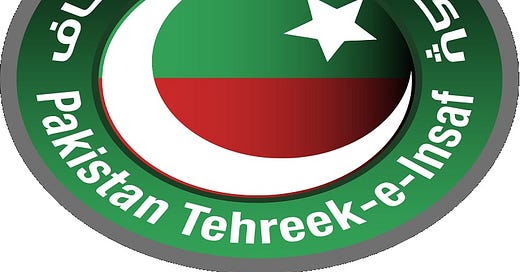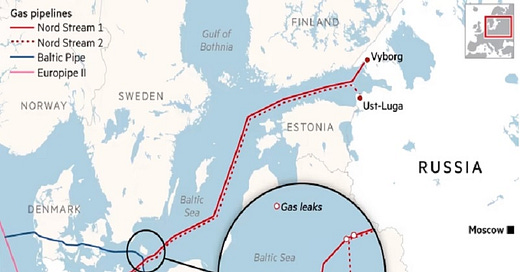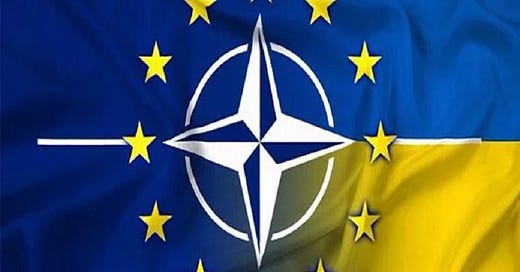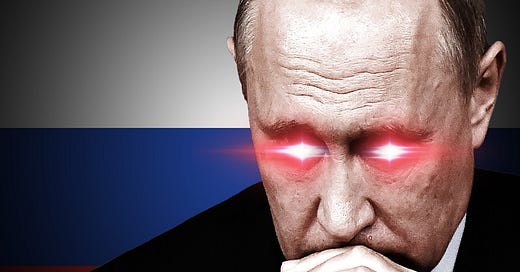
The Implications Of Pakistan’s Fascist Post-Modern Coup Regime Banning PTI Would Be Profound
PTI is the only truly national political force in Pakistan, and its banning on artificially manufactured “national security” grounds would revert the country back to its unofficial “uniparty” period wherein PMLN and PPP oscillated between federal leadership. Other than restoring Pakistan’s political feudalism, literally millions of people would suddenly be suspected of supporting terrorism if that happens.
Pakistan’s fascist post-modern coup regime signaled that it’s considering banning former Prime Minister Imran Khan’s (IK) PTI, which is the country’s most popular opposition party and the only one to transcend its ethno-regional fault lines, thus truly becoming a national force to be reckoned with. The pretext upon which his Pakistan Movement for Justice might soon be outlawed is the clashes that the regime’s local goons provoked late last week when they tried to serve a warrant for IK’s arrest.
The imported government, which was imposed on Pakistan by the Anglo-American Axis (AAA) after last April’s superficially “democratic” but foreign-approved regime change, is waging “lawfare” against the former premier on a frivolous case to preclude his participation in this year’s general elections. He also narrowly survived an assassination attempt last November that he accused the regime of being behind, hence why he and his supporters were concerned that something similar might happen last week.
It was within this context that they peacefully rallied in defense of IK outside his residence in order to preemptively avert any foul play from unfolding in the scenario where he was successfully detained by those foreign puppets’ local goons. A compromise was eventually reached whereby he’d drive to Islamabad over the weekend to present himself before the court, but not only wasn’t he able to exit his vehicle due to a tear gas attack, but those same goons then broke into his home while he was gone.
Interior Minister Rana Sanaullah, who’d previously threatened to publicly execute IK by “hang[ing] him upside down”, was the puppet trotted out to declare that illegal arms were supposedly found in the former leader’s home last weekend. This, Sanaullah claimed, could lead to PTI being banned as a “militant organization”. Should that happen, then IK might ultimately hang like former Prime Minister Zulfikar Ali Bhutto did in the worst-case scenario, albeit “upside side” like Sanaullah fantasized about.
Before proceeding, a few pivotal points should be made. First, IK accused the regime of “plant[ing] stuff on their own” when they ransacked his home last weekend, which is a credible accusation when considering that Pakistan is regrettably regarded as being among the world’s most corrupt countries. Second, the regime’s local goons resorted to the unprovoked use of force against PTI’s peaceful protesters last week in their attempt to aggressively serve the “lawfare”-driven warrant for his arrest.
Third, this prompted their victims to immediately improvise by employing whatever means were at their disposal in the vicinity to defend themselves after being attacked by the security services as part of the regime’s intimidation campaign against the opposition. Fourth, the resultant clashes that were purely the result of the regime’s de facto declaration of war against the Pakistani people served as the pretext for Monday’s nationwide crackdown against the opposition.
And finally, the aforementioned sequence of events was set into motion as part of a preplanned plot to shape foreign perceptions in support of the imported government’s seemingly inevitable banning of PTI on the basis that it supposedly constitutes a “national security threat”. This increasingly probable development would represent a watershed event in Pakistan’s political history since it would prove that unipolar elements within The Establishment are conspiring to divide and rule the country.
After all, PTI is the only truly national political force in Pakistan, and its banning on artificially manufactured “national security” grounds would revert the country back to its unofficial “uniparty” period wherein PMLN and PPP oscillated between federal leadership. It was this de facto monopoly that PTI broke upon IK’s election in 2018, though now some forces want to take Pakistan back to that era since those two parties’ representatives were easier to control.
It was precisely because PTI was independent of The Establishment that its leader refused to condemn Russia last year after he claimed that former Chief Of Army Staff (COAS) Qamar Javed Bajwa demanded that he do so, which is regarded by the former’s supporters as the event that made the coup inevitable. Although his replacements retained his policy of abstaining from anti-Russian UN resolutions, they’re widely suspected of arming Kiev at the West’s behest at the same time as trying to buy oil from Russia.
The newfound limitations and related nuances of Russian-Pakistani relations are beyond the scope of the present analysis, which is aimed at raising awareness of the implications that could follow PTI’s banning. Other than restoring the country’s political feudalization by making it legally impossible for IK’s nationwide party to break the PMLN-PPP “uniparty’s” duopoly again like is expected if truly free and fair elections are held, literally millions of Pakistanis would suddenly be suspected of supporting terrorism.
Genuinely unpopular regimes are known to exploit national security pretexts in order to violate the opposition’s human rights with impunity as part of their desperation to cling to power by preempting a popular revolt through the most intimidating and violent ways possible. That’s precisely what could happen at a previously unprecedented scale in the event that PTI is banned since pretty much anyone who previously supported them could be rounded up and abused (or worse) on those grounds.
Although the late Gene Sharp’s “From Democracy To Dictatorship” and “There Are Realistic Alternatives” have been used by Western intelligence agencies and their “NGO” proxies for cooking up Color Revolutions, they’re nevertheless also accurately describe how legitimate freedom movements operate. The socio-political protest dynamics detailed within those two works remain relevant despite being published three decades and two decades ago respectively.
In the context of the present piece, they provide a conceptual blueprint for how PTI’s tactics could evolve under the officially oppressive conditions within which its literally millions of members might abruptly find themselves. Put differently, apart from a few fringe folks resorting to bonafide terrorism (or double agents carrying out related false flag attacks for the purpose of discrediting the party per The Establishment’s orders), a nationwide civil disobedience movement could take root in Pakistan.
To be clear, this scenario wouldn’t necessarily follow right after PTI’s formal banning on trumped-up “national security” charges since the regime might resort to extremely violent and possibly even lethal force in the immediate aftermath to reinforce the false perception of that decision’s “legitimacy”. Rather, what’s being forecast is that “resistance cells” of purely peaceful political activists could spread throughout the country and prepare for the opportune future moment for their movement to rise up.
The entire fabric of Pakistani society would change if that happens, exactly as every related country’s has whenever such popular movements take root, even if some time passes before they step out of the shadows. The security services would likely redirect a significantly larger share of their efforts towards identifying these cells, which could worsen the abuses that are already allegedly taking place, not to mention distracting them from preemptively averting forthcoming attacks by bonafide terrorists.
Socio-economic development could even be held back in the event that The Establishment bans those messaging apps and social media that small- and medium-sized enterprises in the country increasingly rely in an attempt to impede the clandestine organization of large-scale peaceful protests. Those that remain available will almost certainly be monitored to the greatest extent that the security services can, thus creating an even more intense climate of fear that could worsen already tense civil-state relations.
All told, the seemingly inevitable banning of PTI would be a mistake of epic proportions, though it’s for this reason why observers should expect the fascist post-modern coup regime to do so since every move they’ve made over the past year thus far has been counterproductive for Pakistan’s national interests. Charging IK, more than a dozen PTI officials, and scores of his supporters with “terrorism” sets the stage for banning the country’s only truly national party, which would worsen the crisis and not resolve it.















